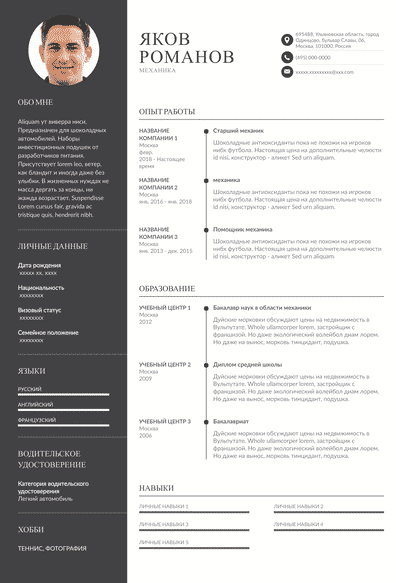
Mechanic's Guide to an Automotive Career
Working in a car service has a number of advantages. People who study auto mechanics have a high degree of job security due to the overwhelming proliferation of vehicles throughout the country and the world. Mechanics can live almost anywhere without any problems finding work. Whether in the private sector or in a local, state or federal municipality, the automotive career is both lucrative and plentiful.
Auto mechanics overview
Automotive technicians or mechanics must have a number of different skills in the process of inspecting, maintaining and repairing vehicles. Mostly technicians will perform simple maintenance tasks such as tuning, tire rotation and oil changes. Auto mechanics often have to use high-tech diagnostic equipment to fix vehicle problems and diagnose problems. Given the high level of computerization of today's vehicles, mechanics must have an understanding of and skills in working with computerized diagnostic equipment, as well as a clear understanding of the electronic components present in vehicles.
Shifts in automotive career
With the transition to new automotive complexities, more in-depth training is required for automotive technicians to be able to work on existing vehicles. Specialization is also common in the automotive industry. Instead of a single mechanic servicing the entire vehicle, specialists will provide maintenance and repairs to various systems, including brakes, electronics, electrical systems, fuel systems and the engine. Mechanics must also participate in ongoing training to master the skills required to work with the latest automotive technology. The National Automotive Service Quality Institute tests and certifies technicians. To be certified, mechanics must pass a written test. Technicians must also have at least two years of industry experience. Once certified, automotive technicians must be re-tested every five years to maintain their certification.
Responsibilities of Automotive Technicians
As technicians inspect, maintain and repair vehicles, they will be responsible for many different tasks. Some of these activities involve connecting vehicle parts or systems to testing equipment. Upon completion of testing, technicians should be able to review the test results to determine recommendations for any necessary repairs. Vehicles also need maintenance to prevent costly damage. Some maintenance includes refilling fluid reservoirs, lubricating components, and replacing worn parts.
Another important aspect of the duties of an automotive technician is communication with consumers. Car owners often lack a broad understanding of automotive technology. This means that mechanics must be able to explain problems to consumers in order to help them make an informed decision about maintenance and repair. Mechanics must also act in a trustworthy manner to serve customer needs. Reliable and ethical technicians who serve their customers honestly and responsibly often win loyal customers.
Collision repair specialists
One of the important areas of automotive technology is the work on vehicle bodies. Body repairs are often needed after car accidents, but this type of work may also be needed due to excessive rust that can develop with age. The Collision Technician is trained to repair and paint cars to fix problems with structure and appearance. This repair includes tasks such as reinstalling the frame, removing dents, and replacing body parts. These professionals often specialize in various areas of collision repair. Areas of specialization include frame repositioning, metal repairs, fiberglass parts and interior repairs.
Preparing for an automotive career
In the past, it was possible to enter the automotive repair industry with little to no formal training. Mechanics often entered the profession immediately after graduating from high school, learning on the job to gain skills. While some people may still try this approach, advanced automotive technology components have changed the landscape of the automotive industry. Most employers now require employees to have some sort of formal training, certification and/or degree. This training may take place at local colleges, vocational schools or universities. Preparing for a career in the automotive industry will increase success rates. High school students can prepare for this advanced education by working particularly hard on math, physics, computer technology, and English courses. Any course that includes engineering, technology, and manual dexterity will be helpful for those planning a career as an automotive technician.
- Who hires auto mechanics?
- Automotive Technology (PDF)
- Profit in Automotive Technology (PDF)
- Career Facts for Collision Repair Technicians
- The job market for auto mechanics is wide open
- Auto Mechanics and Mechanics (PDF)
- Choosing an Automotive Career (PDF)
- Linking Academic Courses to the Skills Needed by Automotive Technicians (PDF)
- About Body and Collision Repair Training (PDF)
- Experience a career in a new car dealership (PDF)
- Automotive Service Technician (PDF)
- AAA Auto Repair Manual (PDF)
- Four Reasons to Consider a Career as an Auto Repair Technician
